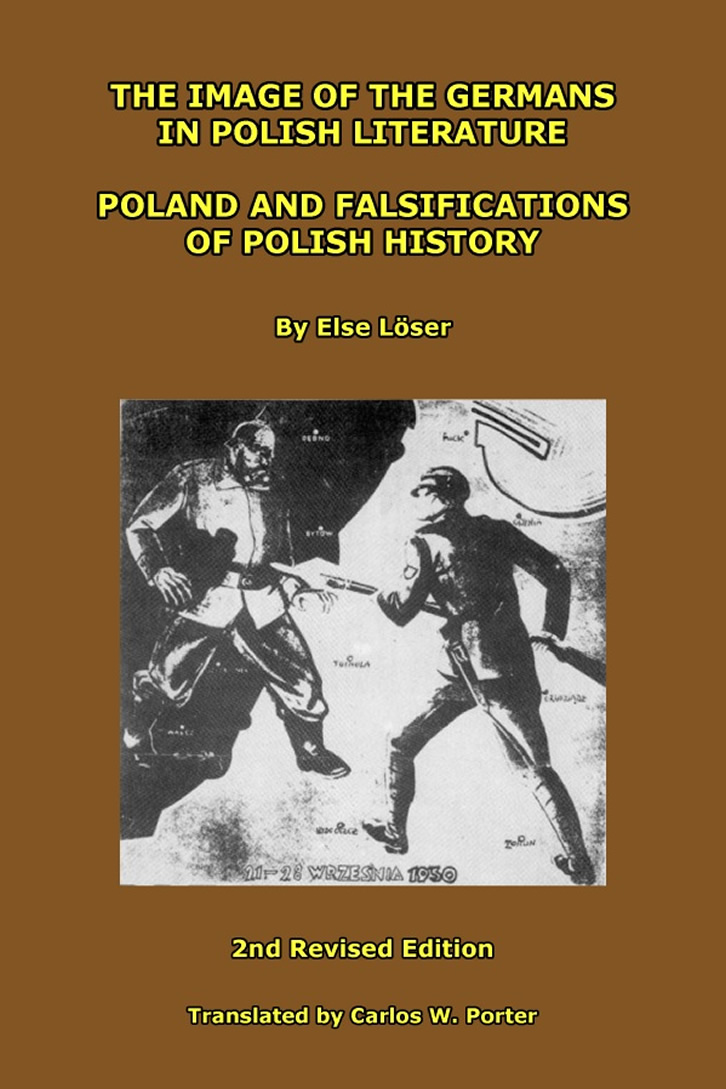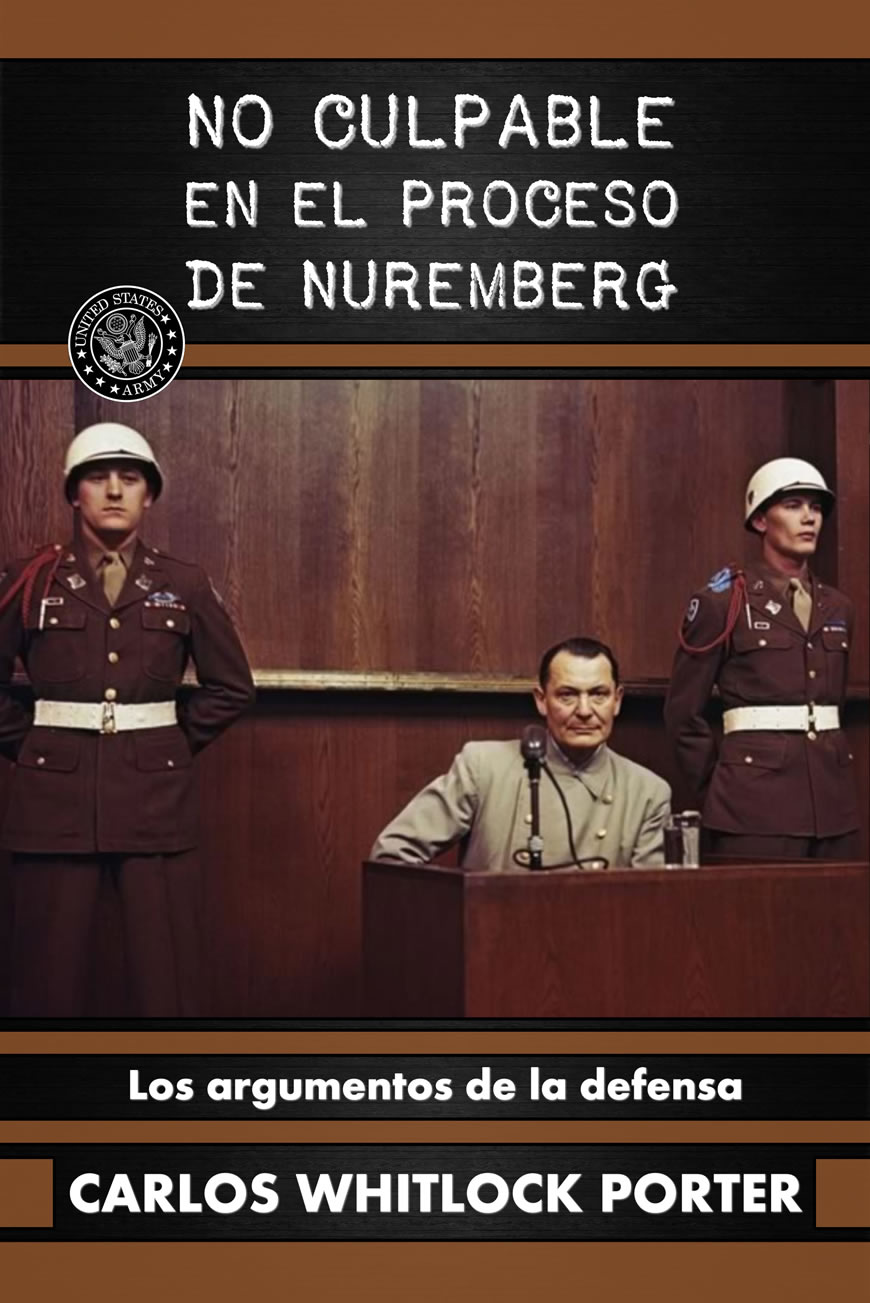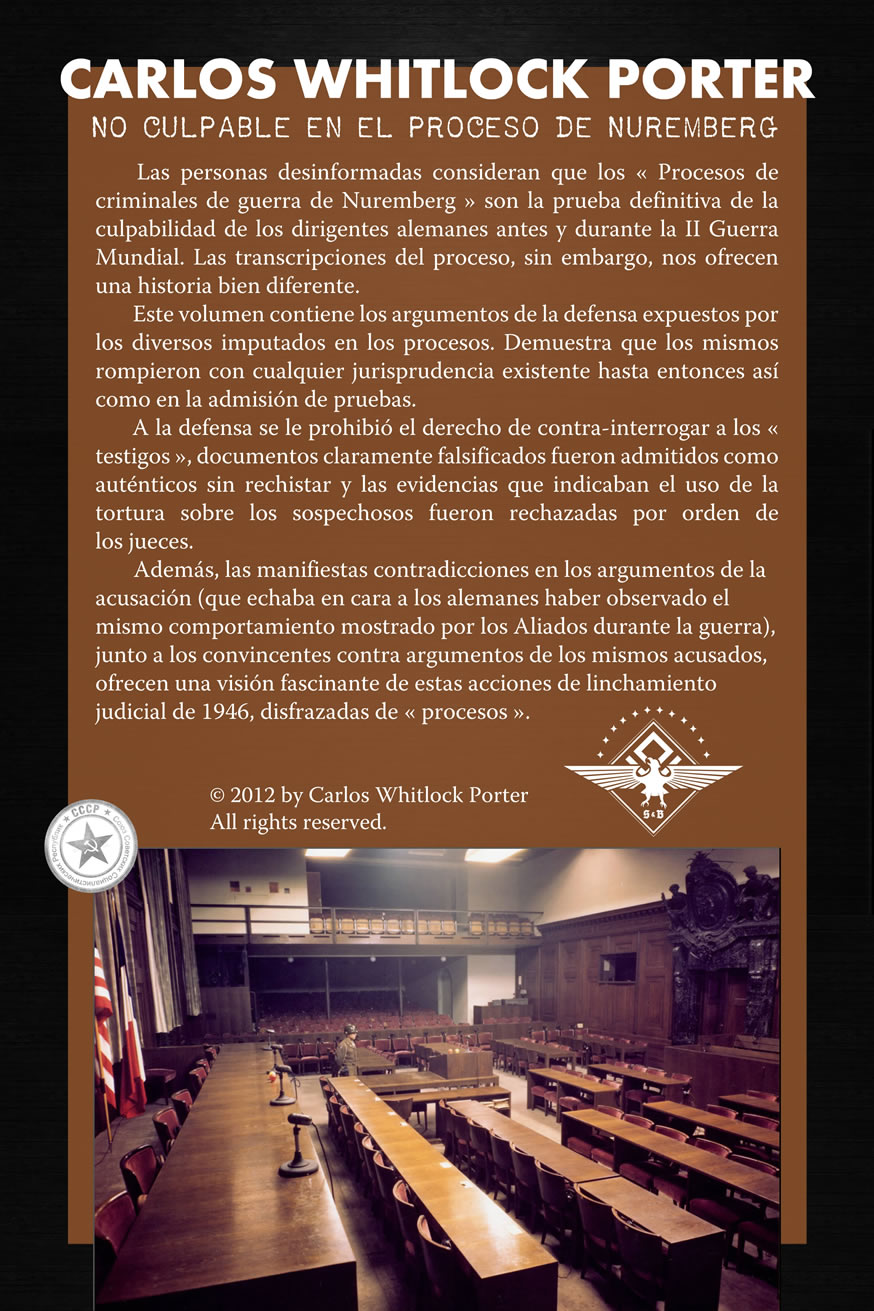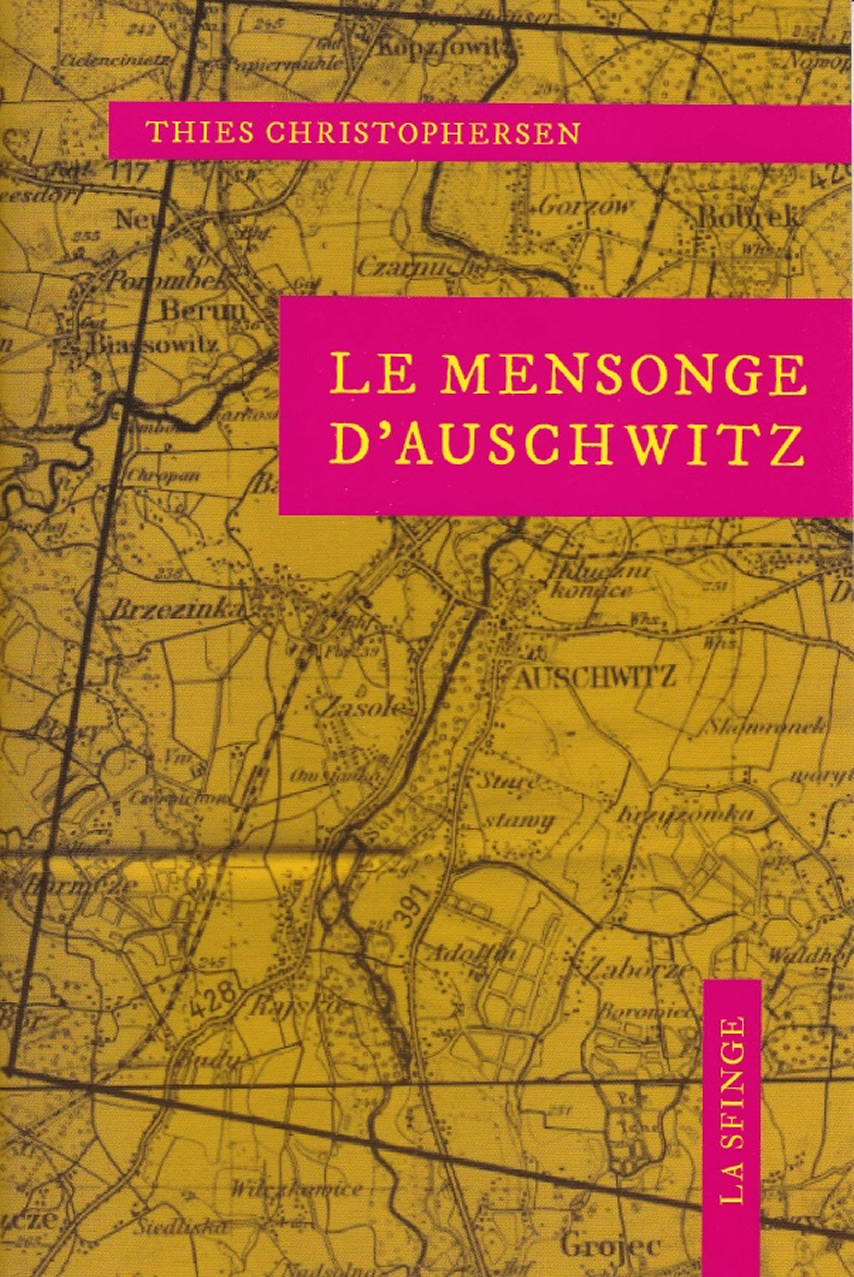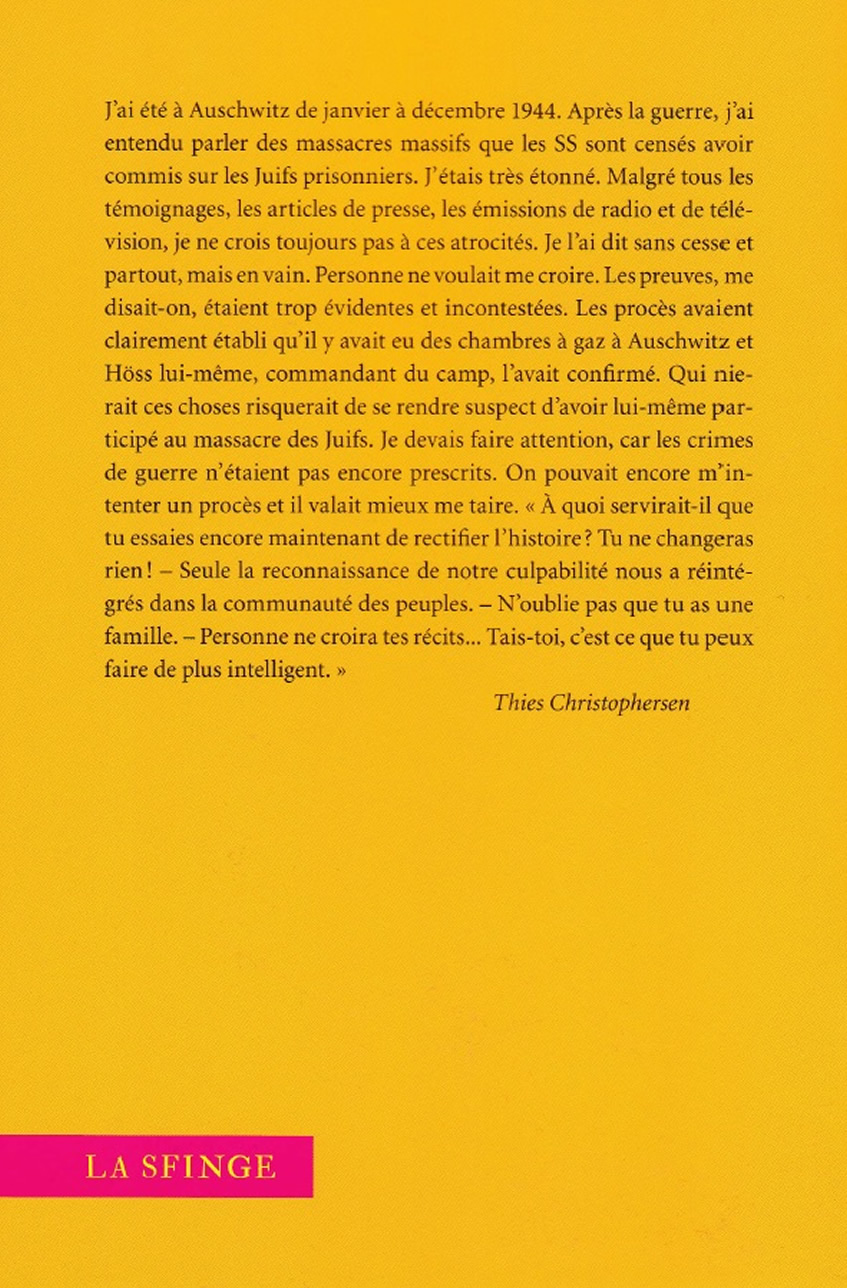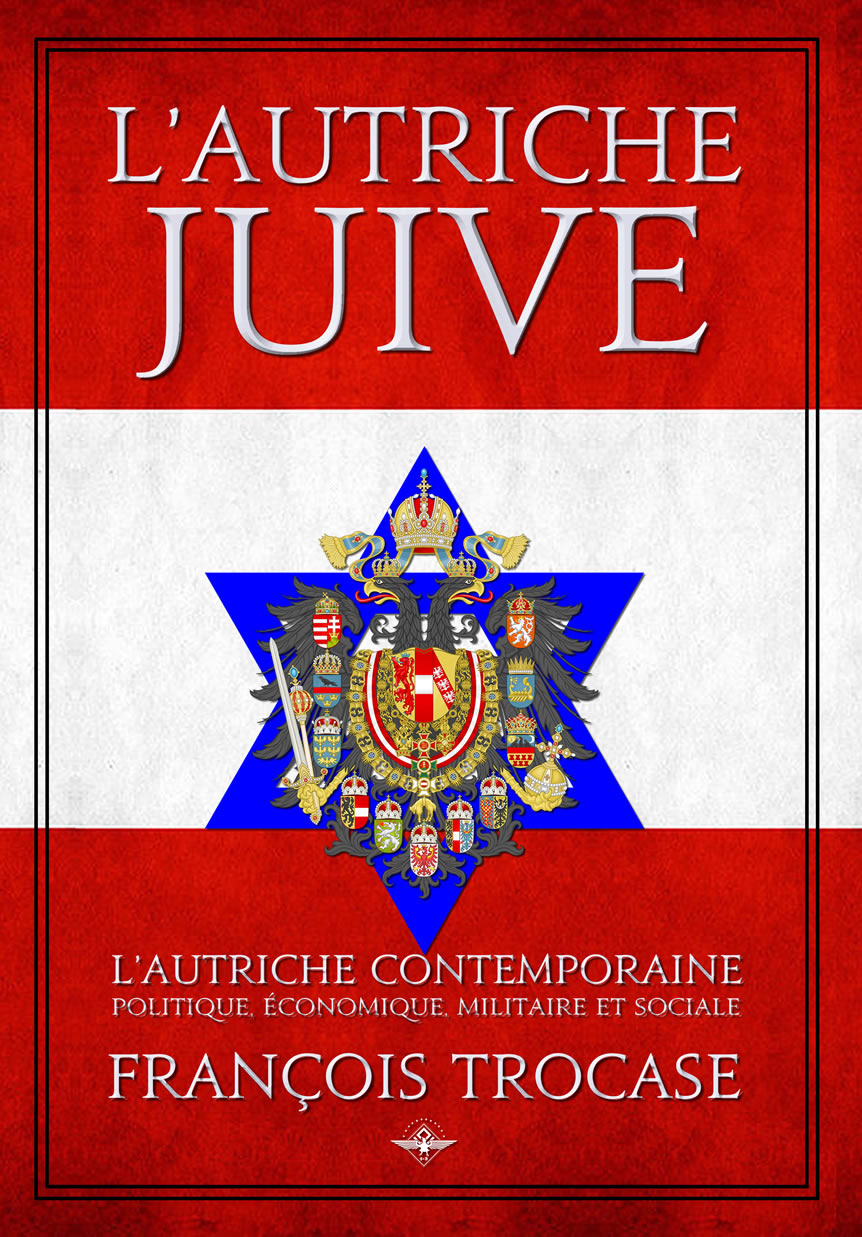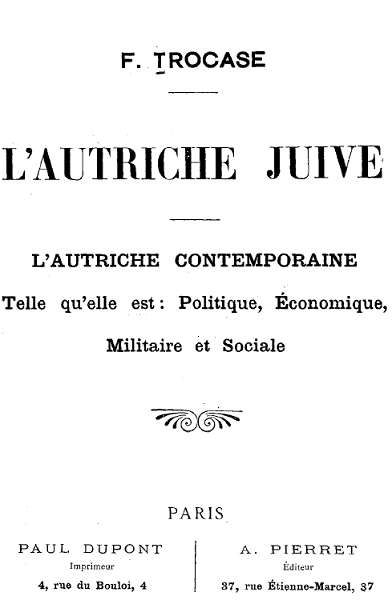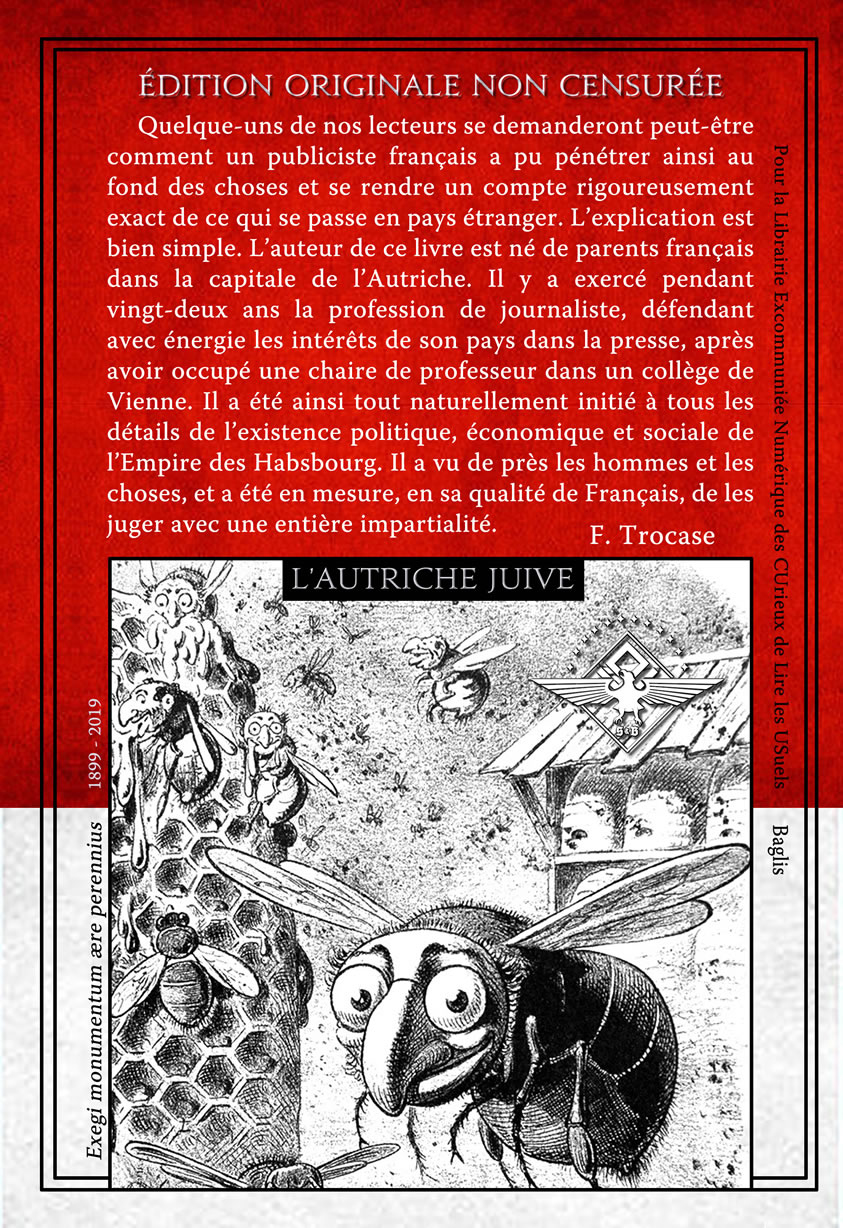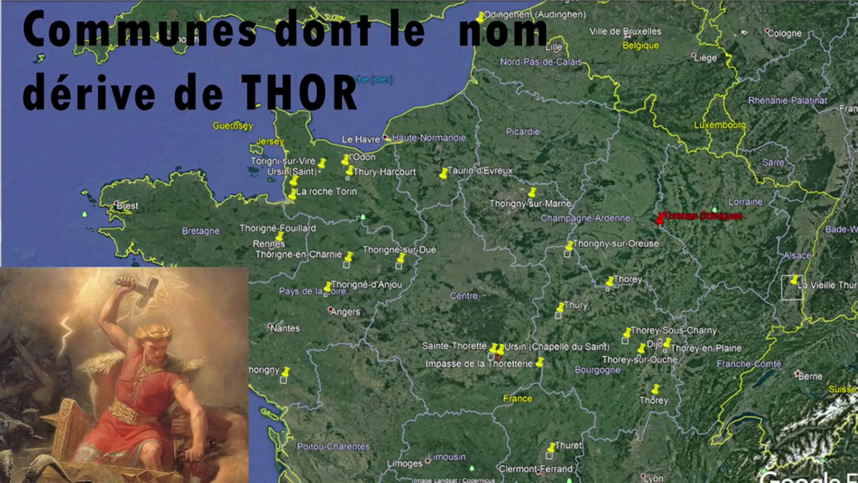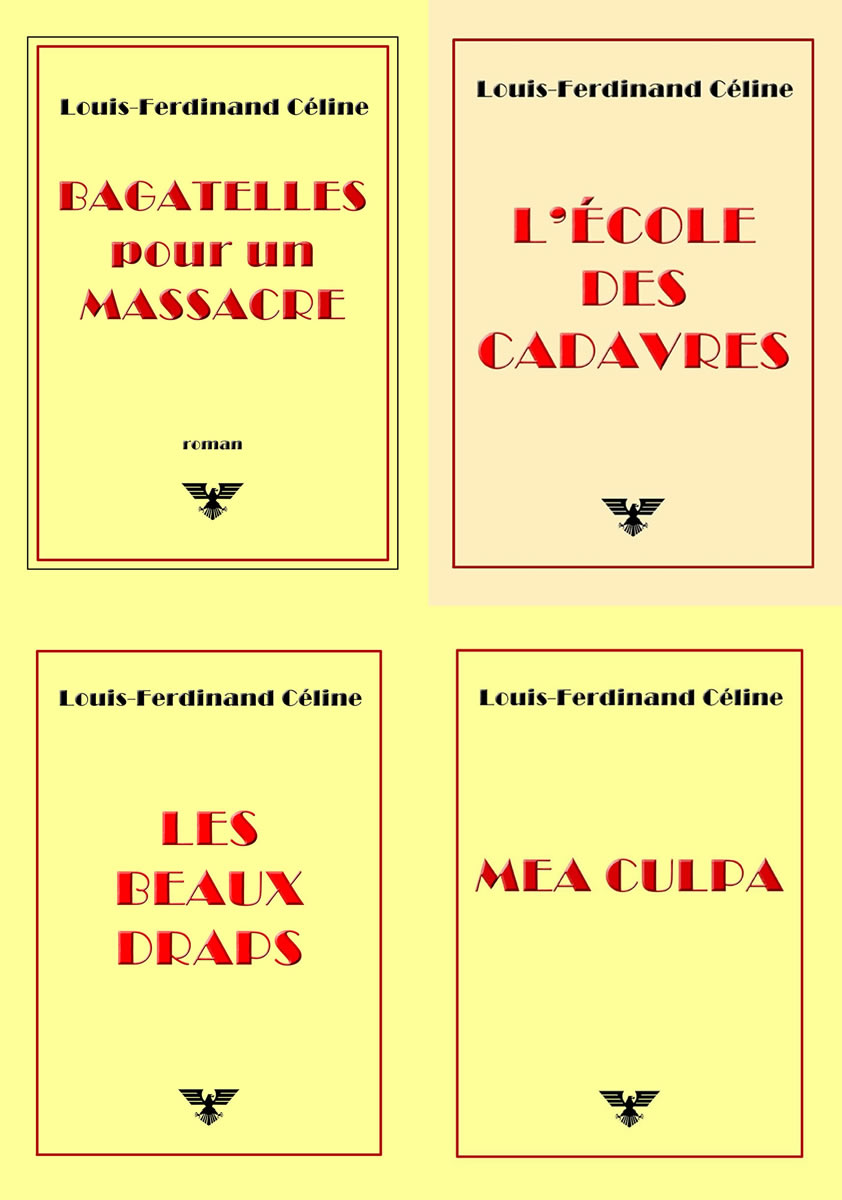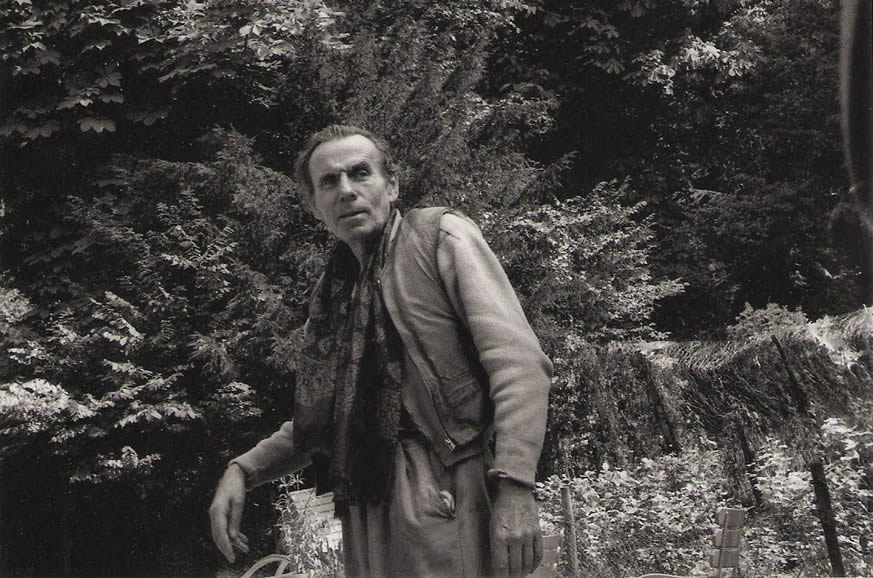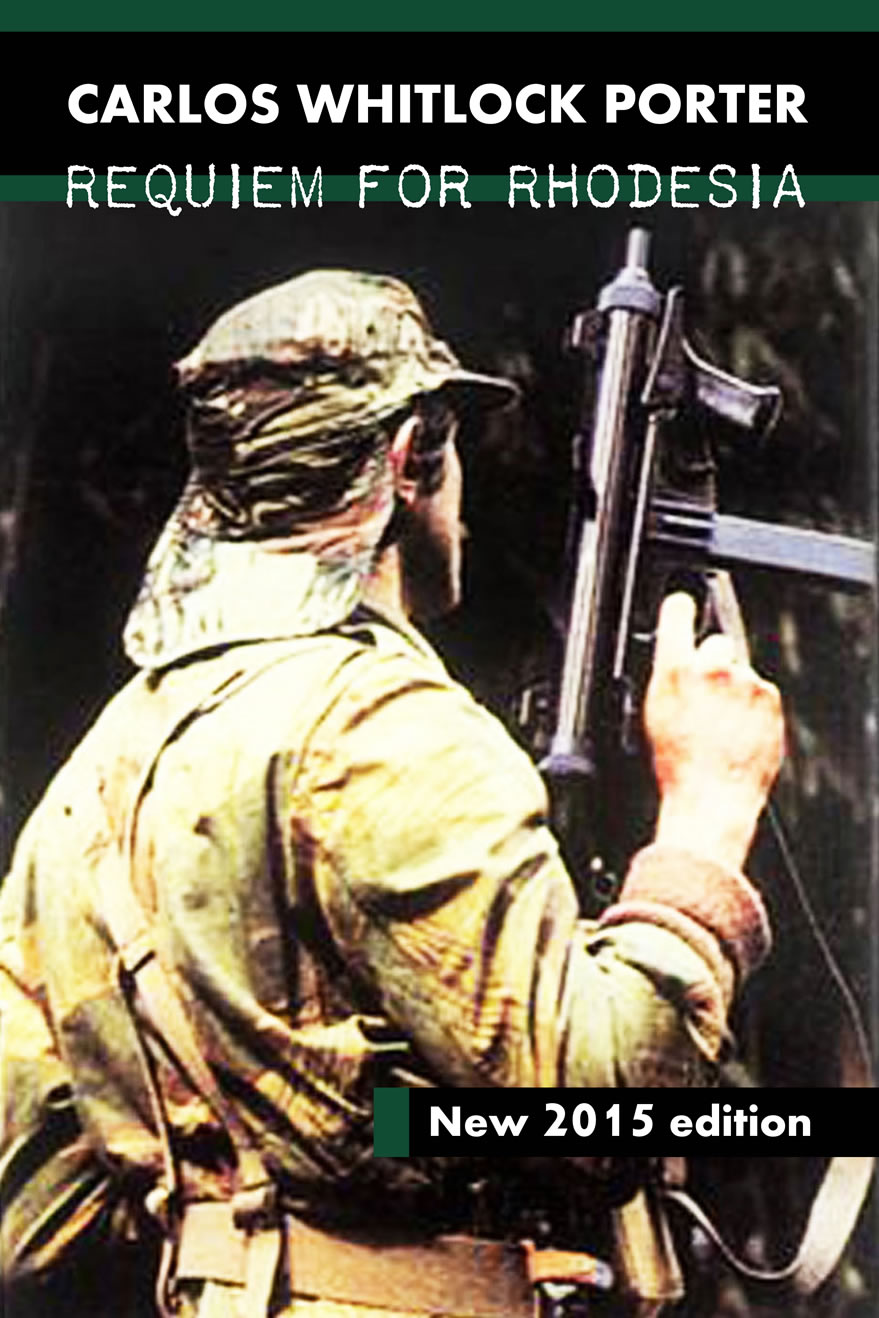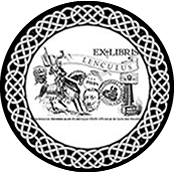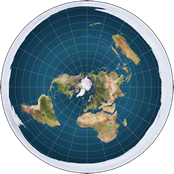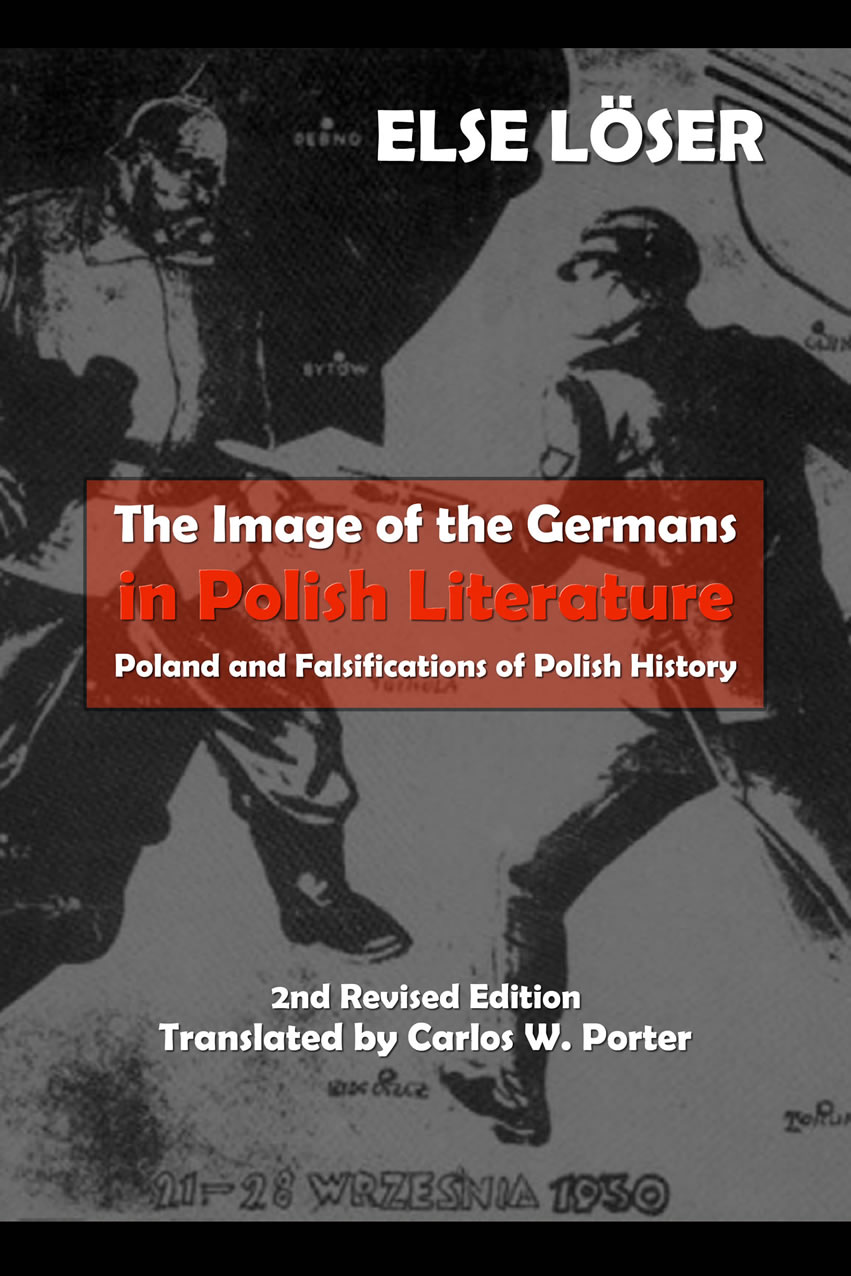
Buy the paper version of the book - Amazon - The Book Patch
Else Löser - The image of the Germans in Polish literature
Poland and Falsifications of Polish History
This book, based on the author's firsthand analysis of the sources, offers an excellent analysis of a much neglected topic. The author succeeds in correcting the one-sided and prejudicial views regarding German-Polish relations and conflicts which have long dominated the discussion, both in the media and in historical research. The book gives us a powerful insight into the forces at work that would ultimately result in the genocide of the Eastern German populations of Pomerania and Silesia. To deepen one's understanding of the issues, and to put this account in a wider context, I suggest reading David Hoggan's The Forced War, Alfred-Maurice de Zayas' A Terrible Revenge : The Ethnic Cleansing of the East European Germans, and Thomas Goodrich's Hellstorm : The Death of Nazi Germany, 1944-1947. Each of these books are unique in each way. Brian Porter's When Nationalism Began to Hate is also very instructive.
The author of these texts was an ethnic German, born, raised and educated in the territories surrendered to Poland under the terms of the Treaty of Versailles, or, in some cases, seized by the Poles by force, in violation of a plebiscite. The author's brother was murdered in the infamous "Bromberg Sunday" massacres of 3 September 1939, committed according to exact address lists of all ethnic Germans, prepared and distributed long in advance; her parents disappeared and were presumably murdered by the Poles or Russians in the spring of 1945.
Absolutely bilingual in both Polish and German, the author dedicated her life to a comparative study of Polish and German history and literature. The information presented here, in English translation, in book form for the first time, is otherwise available only in relatively inaccessible or highly difficult and complicated works written by specialists, almost never in English. The Image of the Germans in Polish Literature is an absolutely unique piece of literature - to my knowledge the only work of its kind in English - providing a unique insight into events and mentalities which continue to produce repercussions to this day.
These texts are essential reading for anyone interested, not only in the causes of the Second World War, but in arriving at an understanding of certain German actions and attitudes which would otherwise be incomprehensible. Any equation has two sides.
Carlos W. Porter
Front cover : The German in this illustration is depicted as fat, brutal, beastly - a monster. The Pole, by contrast, is slim, resolute - the picture of nobility.
Else Löser - Pologne et les falsifications de l'histoire polonaise
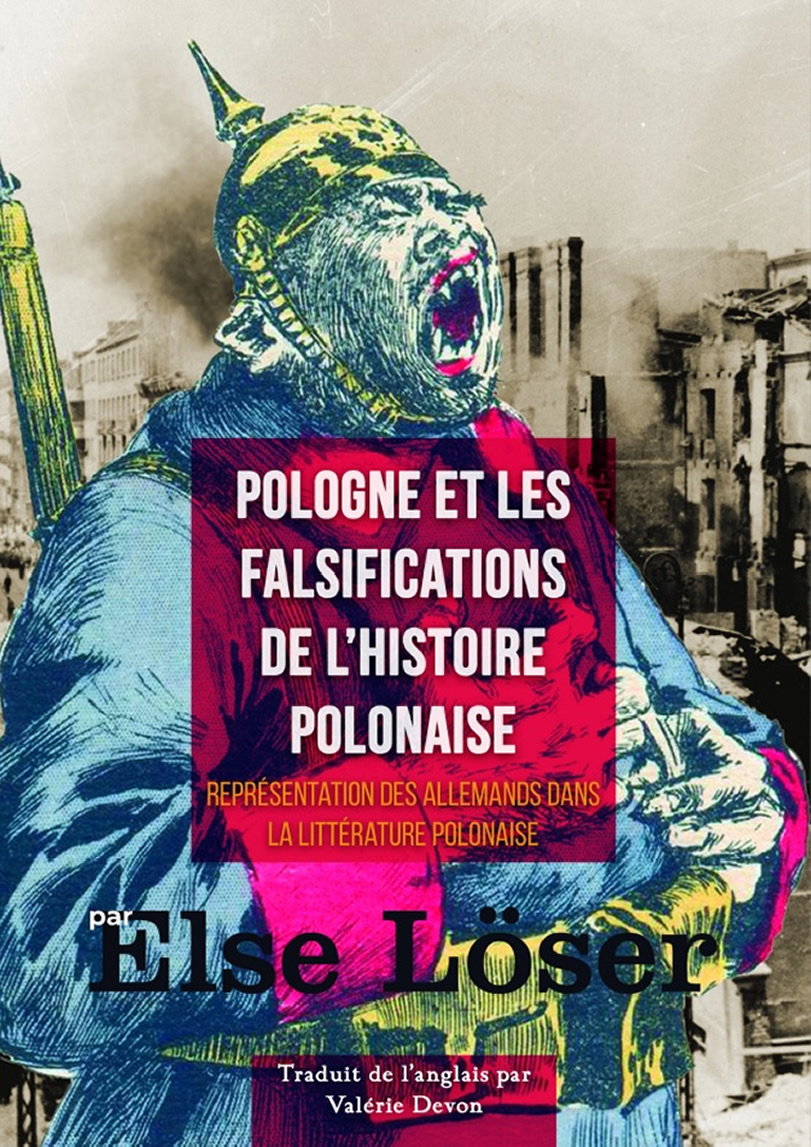
From the Author
Relatively little is known about the author's life apart from what she reveals in her writings. I had the honour of meeting the author personally. In 1996, she sent me a very generous check for my translation of The Image of the Germans in Polish Literature, a check which I had the equal honour of returning uncashed, as I had already been paid a much smaller sum by someone else.
She invited me to her home, a small but beautifully furnished and spotlessly clean bungalow in Kaiserslautern, where I met a number of other people, had tea, dinner, and spent the night.
The author was every inch a lady : tall, slim, erect, almost statuesque, meticulously dressed and groomed, with a magnificent shock of snow-white hair. She never mentioned a husband or children; I had the impression (perhaps it was my intuition) that she was a retired civil servant, living comfortably, with a good pension. The only thing she revealed about her life personally was that her parents had been murdered; she never found out how they died.
In Polen-Deutschland 1939 : Wie kam es zum Krieg ? Wer hat wen überfallen ? (Poland-Germany 1939 : What Caused the War ? Who Attacked Whom?), p. 11, she describes these events as follows :
"I, too, knew, in 1939, what would happen to the Germans if war came. We, my parents and myself, left Poland for Danzig in the summer of 1936, while my brother stayed behind with his family in Bromberg. In March 1939, we received a letter from him stating that drunken Polish officers had been heard bragging in bars that they would 'wade in German blood' as soon as war broke out, and that precise address lists of all ethnic Germans had already been prepared for the purpose - a precise reflection of the publications of the 'Great Power League' in 1929 and 1937, bragging that 'the world would tremble' in the event of a German-Polish war, in which 'there would be no room for human feeling'.
"This is how it happened. My brother was found with bullet wounds through the breast, his face so badly smashed in that he appeared to have been trampled on with hob-nailed boots.
"My parents paid for their German ethnicity with their lives, too - but only in early 1945, when the Poles saw the possibility of wreaking their long-announced revenge. We returned from Danzig to Bromberg in December 1939. When the Russians moved westwards in 1945, the Poles published a new slogan, for the purpose of mobilizing the mob: 'Reichs Germans pack your bags, ethnic Germans buy your coffins'.
"The Poles later claimed that the murder orgy in Bromberg (on 3 September 1939) was in reprisal for the German attack (on 1 September 1939). This is completely out of the question for any thinking person.
"The war began on 1 September, while Bromberg Bloody Sunday began on Sunday morning about 10 o'clock, when the incited mob exited the churches, in which they had been provided with arms. It is simply impossible to draw up and distribute exact address lists of the entire German population in only 2 days, issuing instructions to the population to fall upon their former neighbours and murder them like wild beasts. The guilt of the Polish clergy was proven long ago. It was the clergy who incited the population during their church services, claiming that the Germans were the enemies of Poland and the Catholic Poles. The hatred came from the Polish clergy. Not one jot or title of that guilt can be blotted out.
"But, of course, they won't admit that. They twist their murderous deeds of 3 September 1939 in such as way as to claim that the Germans murdered 20,000 Poles in Bromberg, that the Germans shot at Poles from windows and church towers and made a game out of hunting Poles. A monument to these 20,000 Poles was even put up in Bromberg in their honour.
"But the German population was unarmed and stayed home or in hiding. German military personnel only occupied the city on 5 September. Only the rapid intervention of German military formations prevented the certain death of all the ethnic Germans who had not already been murdered in 1939. But the plan was to murder all Germans..."
It is to her memory that this slim volume is respectfully dedicated.
Carlos W. Porter, translator.
Carlos Whitlock Porter - PDF
Thomas Goodrich - Tempête infernale
